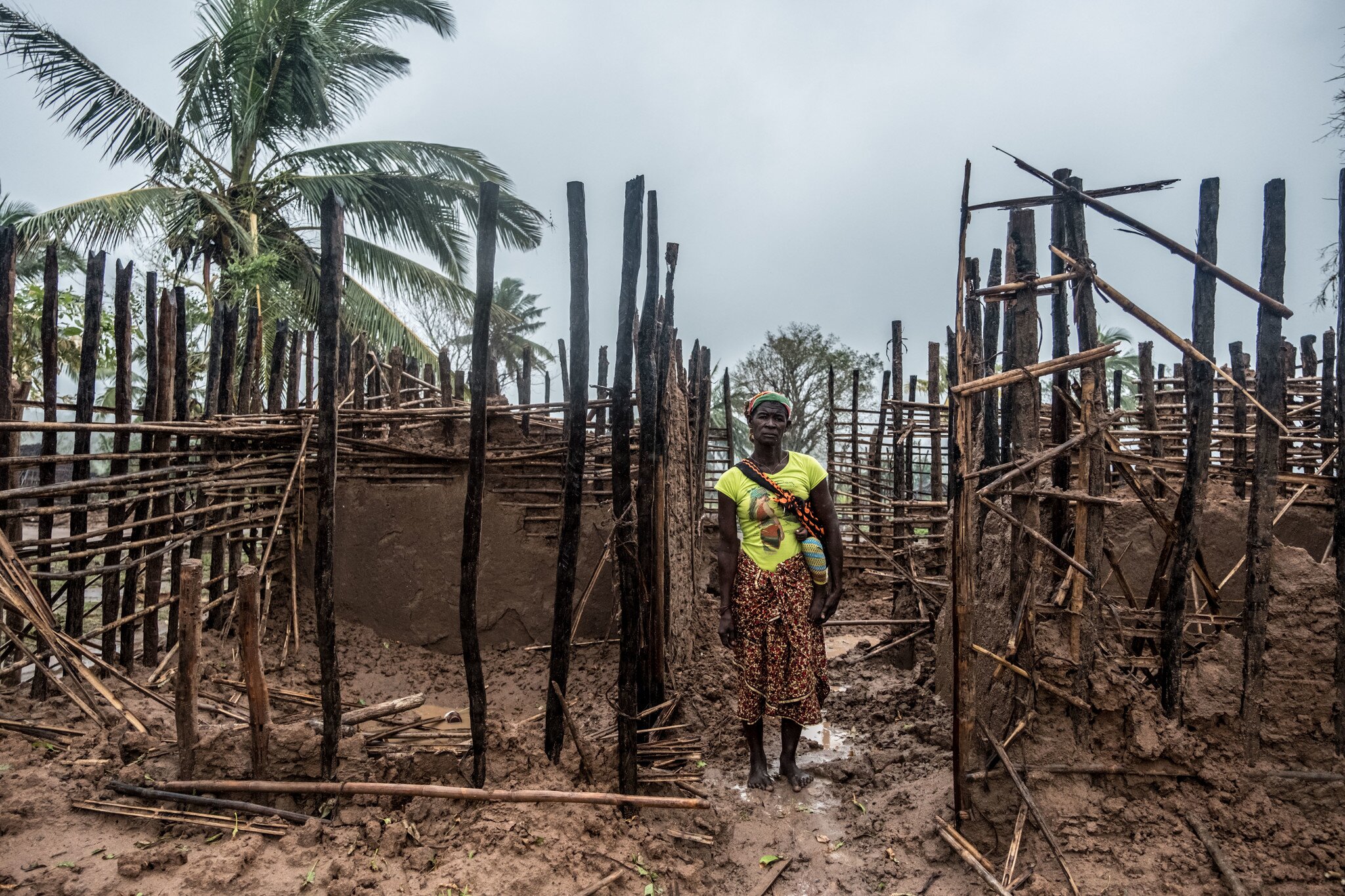人道救援2019年5月31日
Inequality leaves poor to bear brunt of disasters

樂施會
樂施會是國際扶貧機構,致力透過政策倡議、社區扶貧及人道救援服務,與大眾共建「無窮世界」。

Mayasa stands in the ruins of her home in a village in northern Mozambique. (Photo: Tommy Trenchard/Oxfam)
On 14-15 March, Cyclone Idai slammed into Mozambique, Malawi and Zimbabwe, devastating the lives of about 2 million people across the three countries and claiming the lives of over 1,000. Barely six weeks on, Cyclone Kenneth – the strongest tropical cyclone to make landfall in Mozambique in modern history – tore through northern Mozambique, affecting a further 160,000 and killing 40.
Afonso Joao Felix, 25, who witnessed the forceful winds of Cyclone Idai from Buzi, Mozambique, said: ‘We were scared. We thought we would die that day. Everything was coming down. We were all calling Jesus’ name. I still do not know how all of my family are. I lost everything.’ Despite having gone to hell and back, Afonso is sadly one of the more fortunate as he and his family were able to hide in his mother’s house during the storm, which was one of the few houses in the community that was made of bricks.
In every disaster and conflict – be it in both rich and poor countries – the poorest are most vulnerable and hardest hit. In cities like Beira, one of the most badly affected by Cyclone Idai, the poorest live in flimsy tin shacks, while richer people have houses made of concrete walls, stronger roofs and on higher ground. Even climate change, which has led to more frequent and severe disasters, disproportionately affects the poorest as most rely on agriculture and live in areas more susceptible to calamities. Although it’s too early to make direct correlations between climate change and these cyclones, experts suggest that the impacts of Idai and Kenneth are in line with scientific projections about the increasing destructive power of tropical cyclones due to climate change.
For Mayasa, whose village in northern Mozambique was pummelled by Cyclone Kenneth, these changes have been all too real: ‘Since I was a girl the weather here has changed. It's hotter, and there's more rain. And our farms aren't producing as much as they used to. When it's sunny, it's too sunny and when it's rainy it's too rainy.’
In response to the cyclones, Oxfam hasn’t only been reaching vulnerable communities – those who are most affected – with relief like safe drinking water, food, emergency shelter and hygiene items, but will also help recover survivors’ livelihoods.
To minimise the impact of disasters on society though, we need long-term solutions in place before a disaster even strikes. That’s why Oxfam’s lobbying governments to reduce emissions to fight climate change, urging for good public policies like universal social protection, and calling on governments to allocate resources where they’re needed to enable everyone – not just the fortunate few – to be more resilient to disasters.
